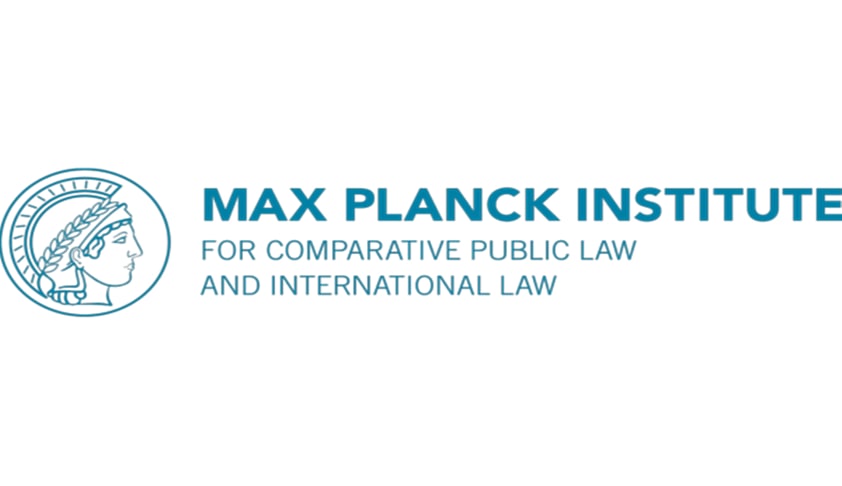JHIL Journal of the History of International Law
Call for engaged listeners
Deadline: 30 September 2018
“Politics and the histories of international law”
Conference organised by the
Journal of the History of International Law (JHIL)
Heidelberg, 15 – 16 February 2019
On 15 and 16 February 2019, an international conference will be held at the Max Planck Institute for International Law in Heidelberg, Germany, under the auspices of the Journal of the History of
International Law. Selected scholars will present and discuss their papers in different parallel panels (see draft programme attached). The aim is to publish these papers (upon peer review) in a focus issue on ‘Politics and the Histories of International Law’ in the journal.
‘L’histoire n’est pas une religion. L’historien n’accepte aucun dogme, ne respecte aucun interdit, ne connaît pas de tabous. Il peut être dérangeant’
(Liberté pour l’histoire, 2005)
Almost all scholarship on international law and its history has political implications. Some say that international legal scholarship is inevitably ideological in nature and that its findings depend on concealed political preferences. Put differently, legal scholarship could be nothing more than the pseudo-objective defence of ruling ideologies. Most famously, Hans Kelsen had denounced a ‘tendency wide-spread among writers on international law’ to produce ‘political ideology’. Kelsen sought to escape this by writing books of a ‘purely juristic character’ (Principles of International Law, 2nd ed. 1967, ix). In his foreword to the commentary on the UN Charter of 1950, he stressed that ‘separation of law from politics in the presentation of national or international problems is possible’ (The Law of the United Nations, 1950, viii).
Many nowadays doubt that purging international legal scholarship of politics would work. Martti Koskenniemi in 2004 put this as follows: ‘The choice is not between law and politics, but between one politics of law, and another. Everything is at stake, but not for everyone’ (EJIL 16 (2005), 123).
So which factors ‘politicise’ international legal scholarship? The first factor is that the object under investigation is itself a political matter. International law has throughout its history been political, because its content depends on the political power of the parties negotiating the treaties, and because it transports political values.
Scholars themselves cannot completely avoid being more or less political actors, because their value judgements, which are inescapable, often carry political implications. However, an important difference between doing scholarship and doing politics lies in the authors’ main intention: It is, ideal-typically, not the primary purpose of scholarship to make politics and unbounded evaluation but to generate knowledge − which could then be used politically, by the author herself or by others. Along this line, most scholars of history seek to uncover various aspects of past events and debates and to contextualise them, thereby realising a modicum of objectivity and neutrality. Some consciously try to avoid judgment, while others are more prone to judging deliberately and to employing historical insights in contemporary political debates.
Research on the history of international law is not only inherently political but moreover specifically ‘risk-prone’. Writing on topics such as genocide, state of exception, failed states, humanitarian intervention, asymmetrical war, or cyber-attacks is especially liable to being used and abused by participants in political controversies. In fact, when it comes to writing history, the fight over master narratives is especially fierce, among governments, in different academic camps, and between governments and academics. The notorious example are memory laws which consecrate specific views on atrocities of the past (especially genocidal massacres) and which sometimes additionally criminalise the denial of those atrocities. These attempts to close historical debates by law has been criticised by historians, most famously in the petition ‘Liberté pour l‘histoire’ by French historians reacting against various French memory laws.
To conclude, the interpretations of historical events are almost inescapably political, and potentially have the power to shape international relations: ‘On résiste à l’invasion des armées; on ne résiste pas à l’invasion des idées’ (Victor Hugo, Histoire d’un crime, 1877/2009, 639). It is against this background that the rights and responsibilities of those researching on the history of international law should be seen.
The conference will be restricted to panellists and to a limited number of engaged listeners.
If you are interested in participating in the audience (not as a speaker) and thus contribute to our discussion, please send an application with a short motivation letter explaining your interest in the conference and current research interests (maximum 400 words) along with your CV to the managing editor of the JHIL at conf.jhil.2019@mpil.de. The deadline for applications is 30 September 2018. Applications arriving after this date will not be taken into consideration. Successful applicants will be notified until the end of October 2018.
Participation is free of charge, but at your own expense. Please note that travel and accommodation costs cannot be covered by the organizers. Admitted engaged listeners must secure their own accommodation and are advised to do this early.
The conference will last from Friday morning, 15 February to Saturday noon, 16 February 2019. It will start with an informal get-together of speakers and engaged listeners on Thursday evening, 14 February 2019.
Venue: Max Planck Institute for Comparative Public Law and Public International Law, Im Neuenheimer Feld 535, D-69120 Heidelberg, Germany.
For updated technical information on the conference see
Anne Peters and Raphael Schäfer
Contact: conf.jhil.2019@mpil.de


No comments:
Post a Comment
Note: Only a member of this blog may post a comment.